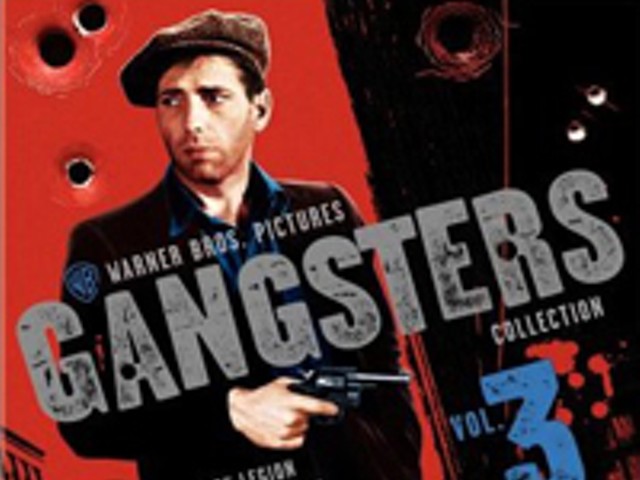Once, years ago, I speculated impolitely on the reasoning behind some now-forgotten boneheaded move the United Auto Workers union had made. Doug Fraser, then a professor of labor studies at Wayne State University, ripped the column out of the Metro Times and circled the worst part of what I said.
He sent it to Millie Jeffrey, who had been the first woman vice president of the union. In the margin, he wrote: "Find out who's been telling him our secrets!" This was one of the greatest labor leaders in automotive history, a man who fought and won huge battles.
Yet he had a sense of perspective and could laugh at himself. He treated everyone with warmth, courtesy and respect. Once, I gave a speech on economic conditions in Michigan and was stunned to find Doug and his wife, Winifred, in the audience. (That struck me a little bit like John Maynard Keynes crashing a freshman econ seminar.)
He died in February of emphysema, and they had a vast memorial service for him on campus last week. I had interviewed him on the radio just weeks before he died; his lungs were going fast, but his mind was still sharp. He knew what was happening to his beloved union, and to the auto industry, and he didn't envy current UAW President Ron Gettelfinger.
In a sense, Doug Fraser was the most important leader the United Auto Workers ever had. That would be regarded as blasphemy by most people — maybe even including Fraser — who regard Walter Reuther as the ultimate labor saint.
Reuther was, indeed, all that. Brilliant, incorruptible, flawlessly honest; he built up the UAW, made it what it was, was bloodied at the Battle of the Overpass, and never ever forgot about his workers.
Yet he died tragically early, in a May 1970 plane crash, when the union was at its zenith. Nobody then foresaw oil shocks and the rise of the Japanese, let alone China.
Doug Fraser, who came here from Scotland at age 6, was only nine years younger than Reuther. His family was poor; he quit high school to work in a Detroit machine shop, where he was fired for union activity. He fought and he clawed and he organized.
When Reuther died, there was considerable sentiment to have Fraser succeed him. When the executive council narrowly chose Leonard Woodcock instead, he wholeheartedly supported him.
By the time Doug Fraser got his turn, in 1977, trouble had begun to surface for the U.S. auto industry. He had to cope with problems Reuther never imagined, especially the near-collapse of Chrysler.
Fraser somehow steered the union through that crisis. He got his union to agree to wage and layoff concessions in order to get Congress to consent to federal loan guarantees.
That was the first time the UAW had ever consented to any givebacks. Today, it is hard to imagine how alien that concept seemed to union workers. But they trusted Fraser, and he got them through. He told me later how much he hated doing it. But he reasoned that "A union president's first duty is to save the jobs of the members." If Chrysler had gone under, no one would have anything.
Most people expected the "bailout" would fail. It succeeded so well the loan guarantees were paid off early. The press tended to lionize Lee Iacocca, and give him credit for saving Chrysler.
That was one of the few things that really irked Fraser. "That's bullshit. The Chrysler workers saved the Chrysler Corporation."
The egocentric Iacocca, incidentally, said the real hero was Doug Fraser. As part of the deal to save the company, Fraser got a seat on the Chrysler board of directors. He was the first labor leader ever to sit on the board of a major corporation, and did well.
Everything is different now. Chrysler was sold to the Germans a few years later, then chewed up and spat out. It is now a rapidly downsizing private company. The United Auto Workers union now has fewer than one-third the members it did in 1970.
Last fall, the UAW's current leader, Ron Gettelfinger, had to agree to new concessions that included the union taking over retirees' health care, under a deal that is almost certain to include reduced benefits in the long run. Worse, they had to agree to a new two-tier pay scale, under which most new hires will be paid less.
I talked to Doug Fraser about this not long before he died. He didn't like what was happening at all, but wasn't about to second-guess the current leadership. I asked what Reuther might have done. "I don't know what Walter Reuther would do, but I do know he would be fighting for the workers somehow."
He knew times had changed. He hoped they would someday change again. But he was a realist, which is what made him such an effective leader, that and the elfin grin and the common touch.
Back in 1999, AFL-CIO President John Sweeney defended the union movement by saying "there is no more corruption in unions than there is in business or in Congress." That wasn't good enough for Doug Fraser. "Business is about making money, but labor unions are supposed to be about helping workers."
That's who he was. Now, the industry and the union need a new visionary. A few days ago, I talked with Sean McAlinden, who has a doctorate in economics and is the chief economist at the Center for Automotive Research. The latest sales figures show steep declines.
What are the No-Longer-So-Big Three's goals, these days? "Surviving until 2010. That's when they have an explosion of new models that will have better power trains and get better mileage."
Better than the so-called-foreign cars, I asked? Well, no, but maybe as good as them. Will the domestic auto industry survive?
Well, yes. Ford will eventually be much smaller, and to survive long term Chrysler badly needs "another hyphen," a partner like their ex-spouse, Herr Daimler. The shorter-term news is worse, at least until they get the American Axle strike resolved.
Someday the majority of American autoworkers may actually be working for "transplant" factories that build Honda Accords and Toyota Camrys. That may not be ideal, but it will mean at least some Americans will have jobs making cars ... even if not in Detroit.
We might not even have the transplants, except for the fact that back in the day, a politically powerful union leader told the Japanese that if they expected to continue to sell cars here they should make them here. The Japanese realized that if they did so, it would be essentially impossible for protectionist politicians to cut them off.
The labor leader's name, by the way, was Doug Fraser.
On a lighter note: The puckish Berl Falbaum, WSU professor, journalist and PR man, has just come out with The Definitive Guide to Organizational Backstabbing, Vol. II (iUniverse, $14.95), which is exactly the kind of book you want to put in the bathroom, if you have more than one bathroom. Falbaum, the only native Detroiter around who grew up in Shanghai, has seen it all.
I would especially recommend it for people who want at least one of their children to become financially successful Republicans. This book also ought to help you understand some of why the auto companies are in the shape they are in, even if that wasn't the author's intention.
Jack Lessenberry opines weekly for Metro Times. Send comments to [email protected]




